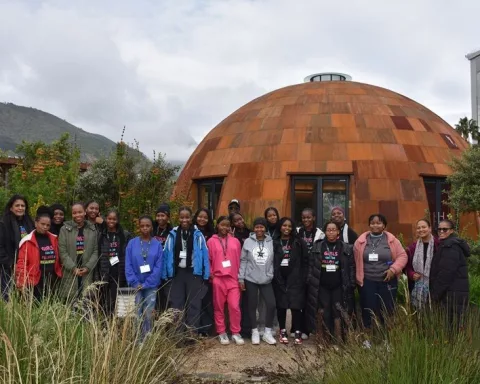Minister Kubayi addressed the International Women’s Day gathering in East London, highlighting the enduring stereotypes and cultural prejudices that impede women’s advancement in sectors traditionally dominated by men. She emphasized the need to invest in women and urged women to become pioneers in the market. Despite progress in women’s rights, Kubayi drew attention to the continuing struggle with gender inequality.
Understanding Minister Kubayi’s Address on International Women’s Day
Mmamoloko Kubayi, Minister of Human Settlements, addressed the International Women’s Day gathering in East London, highlighting that women still struggle with gender inequality. Despite progress in women’s rights, Kubayi drew attention to the enduring stereotypes and cultural prejudices that impede women’s advancement in sectors traditionally dominated by men. Kubayi emphasized the need to invest in women and urged women to become pioneers in the market.
On March 8, 2024, Mmamoloko Kubayi, the esteemed Minister of Human Settlements, graced the International Women’s Day gathering in Eastern Cape, East London, with an air of solemnity and an inspiring call to action. She began her address with a powerful quote from the formidable Winnie Nomzamo Mandela, drawing attention to not only the significance of the quote but its relevance to women’s economic emancipation over the past three decades.
Kubayi underscored the importance of recognizing and paying tribute to the brave women who kept gender equality at the forefront of the struggle against oppression. These were the women who defied male chauvinism and gender bias, refusing to let their voices be drowned out.
The Struggle and Potential for Gender Equality
However, despite significant progress in women’s rights, Kubayi highlighted that women worldwide still wrestle with numerous challenges, the most prominent being gender inequality. This inequality emerges in various aspects of life, encompassing economic opportunities and political participation. Yet, the minister instilled hope, referencing historical instances where victims of such uneven distribution of power and resources inevitably rose to correct the disparity.
Reiterating Martin Luther King’s words, Kubayi told her audience that the “long arch of history always bends towards justice”. Her statement resonated with conviction, reaffirming faith in the pursuit of justice, despite its difficulties.
The Corporate World and Gender Disparity
Turning her attention to the corporate world, Kubayi illuminated the gender gap, particularly on the Boards of JSE-listed companies where only 35% of representation is female. Moreover, a mere 11% of the country’s construction workforce comprises women. This disparity is symptomatic of the enduring stereotypes and cultural prejudices that impede women’s advancement in sectors traditionally dominated by men.
Further, Kubayi affirmed that the women present were those who would not stay silent against injustice. These women were ready to confront and challenge ingrained patriarchy and gender inequality. She applauded the individual hardships each woman had overcome on their journey, their resilience against adversity, and their unwavering refusal to succumb to bullying and chauvinism.
Emphasizing the Need to Invest in Women
In acknowledgment of the United Nations International Women’s Day theme, “Invest in Women: Accelerate Progress”, Kubayi drew an analogy with a biblical verse from Ezekiel. She stressed on the relationship between privilege, responsibility, and accountability. She reiterated her commitment to empowering and investing in the women of South Africa. Alongside the privilege came responsibility, and coinciding with responsibility was accountability.
Reflecting on the progress made, Kubayi spoke of the Human Settlements Women Indaba and Exhibition, and the emerging success stories from the sector. Though she confessed that there was still ground to cover, she encouraged the audience to rejoice in the advancements made towards women empowerment.
The Path Forward
Looking to the future, Kubayi called for women to transition from simply catching up to blazing trails within the sector. She pinpointed urbanization, climate change, economic conditions, and technological innovations as ripe opportunities to be seized and encouraged the audience to become pioneers in the market.
During her address, the Minister put emphasis on the signing of a social commitment by the South African government. This treaty, she stated, would act as a bilateral framework, allowing both parties to hold each other accountable, thereby augmenting the impact of programs.
In conclusion, Minister Kubayi ended her speech with a rallying plea for women’s emancipation, stating that the fight would not subside until the societal structures of patriarchy and gender disparity disintegrated. Her words were a reminder of the hard-fought victories and a clarion call for the persistent march towards absolute equality.
1. What did Minister Kubayi address in her International Women’s Day speech?
Minister Kubayi addressed the International Women’s Day gathering in East London, highlighting the enduring stereotypes and cultural prejudices that impede women’s advancement in sectors traditionally dominated by men. She emphasized the need to invest in women and urged women to become pioneers in the market, while also acknowledging the continuing struggle with gender inequality.
2. What is the significance of International Women’s Day?
International Women’s Day is a global day celebrating the social, economic, cultural, and political achievements of women. The day also marks a call to action for accelerating gender parity.
3. What is the gender gap in the corporate world?
Only 35% of representation on the Boards of JSE-listed companies is female, and a mere 11% of the country’s construction workforce comprises women. These disparities are symptomatic of the enduring stereotypes and cultural prejudices that impede women’s advancement in sectors traditionally dominated by men.
4. What is the UN International Women’s Day theme for 2024?
The United Nations International Women’s Day theme for 2024 is “Invest in Women: Accelerate Progress”. This theme emphasizes the importance of investing in women and highlighting the benefits of women’s economic empowerment.
5. What did Minister Kubayi emphasize during her speech?
Minister Kubayi emphasized the need to invest in women and urged women to become pioneers in the market. She also highlighted the enduring stereotypes and cultural prejudices that impede women’s advancement in sectors traditionally dominated by men.
6. What did Minister Kubayi call for in the future?
Minister Kubayi called for women to transition from simply catching up to blazing trails within the sector. She pinpointed urbanization, climate change, economic conditions, and technological innovations as ripe opportunities to be seized and encouraged the audience to become pioneers in the market.












